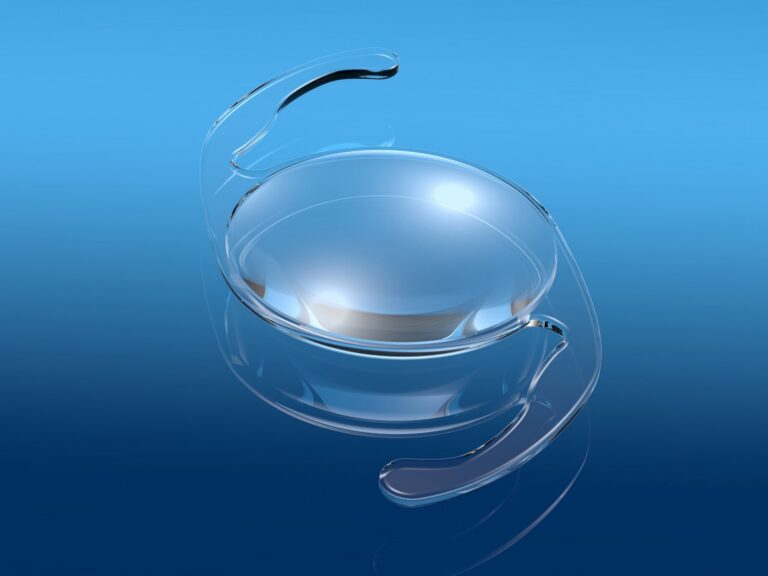
What is Laser Cataract Surgery?
At Ophthalmology Associates of the Valley, we are excited to offer the most specialized diagnosis technology and treatment approaches for cataracts, such as laser cataract surgery. Classified as a fogging of the natural lens within the eye, cataracts usually begin to develop around and past the age of 40. Since cataracts are opaque regions within the makeup of the lens, we have to remove the lens and exchange it with an intraocular lens (IOL) to treat the condition.
Schedule a visit with one of our ophthalmologists at our offices in Los Angeles, CA to find out if you could be a candidate for laser cataract surgery.
What Are The Benefits Of Laser Cataract Surgery?
While both traditional and laser cataract surgery provide effective solutions to treat cataracts and improve vision, laser cataract removal offers:
The ability to also correct astigmatism
A gentler treatment requiring less energy to break up cataracts
A quicker procedure
Superb precision and consistency
Minimized risk of corneal swelling, eye tilt, and distortion
Am I a candidate for laser cataract surgery?
In general, any patient with cataracts is potentially eligible for femtosecond laser cataract surgery. Indications include extremely dense cataracts that require an excessive amount of phacoemulsification energy, patients with poor corneal endothelial cells called Fuchs, and sometimes to improve the centering of special premium lens implants. During a consultation at OAV, one of our highly trained eye surgeons can discuss any concerns you may have and help you identify the best cataract treatment options.
What is the VICTUS Femtosecond Laser?
During laser cataract surgery, we utilize the latest technology, the FDA approved VICTUS Femtosecond Laser Workstation. Our team at Ophthalmology Associates of the Valley believes it to be the best option in available femtosecond lasers. Here are some advantages to this laser:
How does laser cataract surgery work?
Half an hour to an hour before laser cataract removal, an eye care professional completely numbs the patient’s eyes by administering eye drops. Laser cataract surgery has the same goal as traditional cataract surgery, but we utilize advanced laser technology to reduce astigmatism and disintegrate the cataract. The laser portion of the cataract surgery is performed first in an adjacent room. It takes only about 5 minutes and is relatively painless. Our innovative technology creates an incredibly sophisticated map of the eye. Because of this, the lasers can find the precise position of the cataract. As soon as the cataract is disintegrated and removed, the surgeon can replace it with the selected intraocular lens. Thanks to its unparalleled precision, laser cataract surgery technology produces exceptional outcomes with a faster recovery downtime than traditional surgery.
If you have astigmatism, we will use a different incision type to complete cataract laser surgery. We use a specialized incision called the limbal relaxing incision. These small, arch-shaped incisions are made on the edges of the cornea, called the limbus. To reduce the steep curve within the eye, the limbus is cut or relaxed so the cornea is more rounded. Following the limbal relaxing incisions, we will complete the rest of your surgery.
The entire procedure only takes 10-15 minutes. Patients are usually given some oral sedation for the femtosecond laser portion of the surgery. Intravenous sedation with a board-certified anesthesiologist is then given during the remainder of the procedure.
A small bruise on the white of the eye called a subconjunctival hemorrhage commonly occurs with the femtosecond laser, but this dissipates quickly after the procedure is completed.
How long is recovery from laser Cataract Surgery?
Immediately After Surgery
After the surgery is complete, patients go to the recovery room for about 15-20 minutes, have something to eat and drink, and then go home. There can be some initial blurriness during the immediate postoperative period. Your eye and entire visual system needs some time to heal after the removal of the cataract and adapt to the intraocular lens that replaced it.
Many patients report clearer vision within several hours after laser cataract removal, but others may need a few days. Sometimes patients report some dry eye or a feeling of scratchiness in the eye after cataract surgery. These symptoms subside quickly, usually by the next morning, as your eye heals.
We may or may not put a shield over the eye when the patient leaves the surgery center! Patients can resume all normal and reasonable activities that same day, except driving, because of the sedation. Because OAV surgeons use just eye drop anesthesia, no injection is given to numb the eye.
Restrictions
The only restriction following surgery is to avoid bending with the head below the waist for two or three days, avoid getting water directly into the eye. Patients should also avoid the use of eye makeup for 5 days. Patients can take normal baths or showers but should avoid getting water directly into the eye. There is no swimming, hot tubs, or steam saunas for a minimum of two weeks after your laser cataract procedure.
Visual Recovery
The visual recovery time is typically extremely rapid but varies from patient to patient. Some individuals remark how much better they see right away, even while in the recovery room. However, many patients feel their vision is a bit cloudy, foggy, or hazy in the first few days after their laser cataract procedure. The vision improves almost daily over the first 1-2 weeks. If surgery on both eyes is needed, our surgeons recommend operating on the two a week apart, which makes the overall recovery time much quicker. We wait about a week after the 2nd surgery before prescribing new eyeglasses.
Post-Surgery Medications
Our surgeons recommend beginning the use of postoperative eye drops three times a day as soon as the patient gets home from surgery. One of the medications helps to make the eye more comfortable. Usually, patients have a scratchy feeling in the eye as if there is a piece of sand or a pebble in the eye. This tends to resolve over the first few days. It’s VERY unusual for patients to have pain requiring pain medication other than over-the-counter relievers such as ibuprofen or acetaminophen.
Laser Cataract Surgery FAQ
Protect your vision
When not treated appropriately, cataracts can drastically affect your daily life and ultimately cause blindness. However, by receiving laser cataract surgery at Ophthalmology Associates of the Valley, you can eliminate your cataracts and restore your eyesight. Our team encourages men and women in Los Angeles, CA who have been diagnosed with cataracts to call our office soon for an evaluation with one of our excellent ophthalmologists. We can provide details about all of your possible treatment options and prevent any worries about laser cataract surgery.




